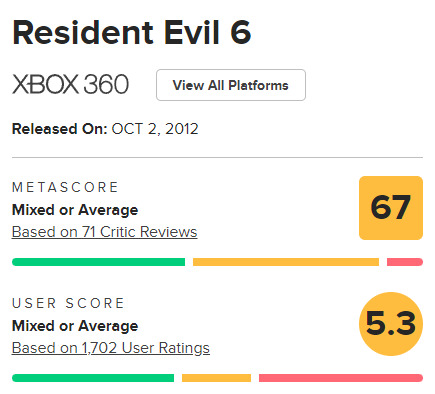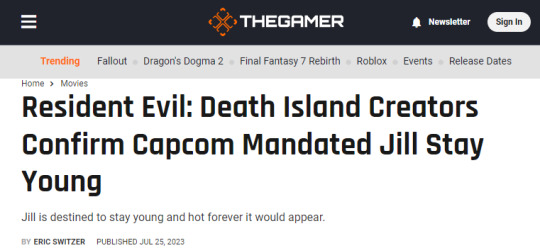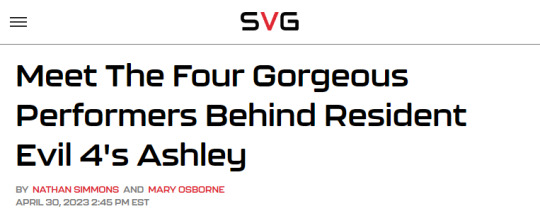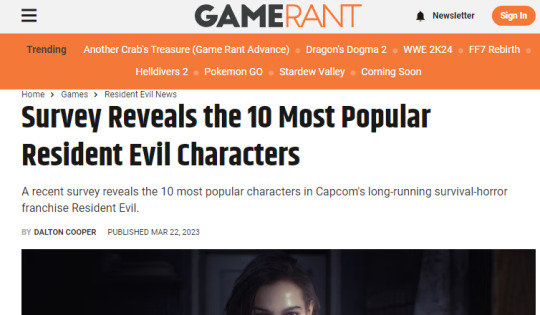#ADAS Market Industry
Text

As per Business Intelligence Insights (BII) study, the Global ADAS Market attained revenue growth of USD 26.80 million in 2021 and it is projected to reach around USD 51.78 million by 2030, growing at a 11.60% CAGR.
#ADAS Market#ADAS Market Market Trends#ADAS Market Share#ADAS Market Size#ADAS Market Analysis#ADAS Market Demand#ADAS Market Growth 2023#ADAS Market Industry
0 notes
Text
The Europe ADAS and autonomous sensor maintenance equipment market (excluding U.K.) was valued at $556.8 thousand in 2022, and it is expected to grow at a CAGR of 49.32% and reach $30,679.3 thousand by 2032.
#Europe ADAS and Autonomous Sensor Maintenance Equipment Market#Europe ADAS and Autonomous Sensor Maintenance Equipment Report#Europe ADAS and Autonomous Sensor Maintenance Equipment Industry#Automotive#BISResearch
0 notes
Text
#Global ADAS and Autonomous Driving Components Market Size#Share#Trends#Growth#Industry Analysis#Key Players#Revenue#Future Development & Forecast
0 notes
Text
#Adas And Autonomous Driving Components Market#Adas And Autonomous Driving Components Market Trends#Adas And Autonomous Driving Components Market Growth#Adas And Autonomous Driving Components Market Industry#Adas And Autonomous Driving Components Market Research#Adas And Autonomous Driving Components Market Report
0 notes
Text
#Global ADAS Camera Market Size#Share#Trends#Growth#Industry Analysis#Key Players#Revenue#Future Development & Forecast 2023-2032#global research market report#global market insights
0 notes
Text
Advanced Driver Assistance Systems (ADAS) Market Is Expected To Witness Prolific Demand and Reach US$ 93 billion by 2028
#Advanced Driver Assistance Systems (ADAS) Market#Advanced Driver Assistance Systems (ADAS) Industry#Advanced Driver Assistance Systems (ADAS) Market Size#Advanced Driver Assistance Systems (ADAS) Market Share#Advanced Driver Assistance Systems (ADAS) Market Growth
0 notes
Text

فخارة العدس / Fukharat l'adas (Palestinian clay-pot lentils)
The name of this dish comes from "فَخَّار" ("fakhar"), meaning "pottery," and "عَدَس" ("'adas"), meaning "lentils." It is traditionally cooked in a قدرة ("qedra," clay pot) made from clay refined from local soil and shaped in family-owned pottery workshops. This type of pot is also used to make a lamb and rice dish of the same name commonly eaten in Gaza and Hebron. The qedra is filled with the cooking ingredients, sealed with a flour-water paste or with aluminum foil, and placed in a wood-fired oven—or buried in an earth oven—to cook for several hours, or even overnight.
This simple dish cooks red lentils with yellow onion, olive oil, and cumin to produce a smooth, earthy stew; additional olive oil and fresh lemon juice squeezed on after cooking add freshness and a tart lift, and شطة (shatta, red chili paste) is spooned in for heat.
As of 2019, the number of families producing qedra in Gaza had decreased from 40 or 50 to 3 or 4, according to workshop owner Sabri Attallah. The Israeli blockade which began in 2007 closed off foreign markets for Palestinian qedras, while cheaper, metal imports cut in on the local market. When the pots are exported to Israel, the multiple checkpoints and mandatory searches between Gaza and Israel cause many of them to break. The compression of Palestinians into small areas by Israeli government and settlers also spells problems for the qedra industry, as the smoke caused by firing pots reduces air quality for nearby residents. Many consider pottery-making to be both an integral part of Palestinian identity, and to be dying out: thus the targeting of Palestinians' economic self-determination targets cuisine and culture as well.
Today, Israeli weapons threaten Palestinian existence.
Palestine Action has called for bail fund donations to aid in their storming, occupying, shutting down, and dismantling of factories and offices owned by Israeli arms manufacturer Elbit Systems.
For the lentils:
1 cup split red lentils, rinsed
1 yellow onion, chopped
3 Tbsp olive oil
1 tsp cumin seeds, toasted and ground
Salt, to taste
About 3 cups water
For the shatta (شطة):
100g (about 1 cup) fresh red chili peppers
2 tsp table salt
2 Tbsp olive oil
To serve:
Olive oil
Juice of 1/2 lemon, or to taste
Sweet peppers, radishes, spring onions, pickles, olives, leafy greens, shatta (red chili pepper paste).
Instructions:
For the shatta:
1. Wash peppers and remove stems. Use a mortar and pestle, food processor, or potato ricer to reduce peppers to a paste.
2. Add salt and stir. Add olive oil and stir. Store extra shatta in a jar in the fridge; cover with a thin layer of olive oil to avoid spoiling.
For the lentils (in the oven):
1. Coat the inside a piece of clay cookware of sufficient size, such as a Palestinian qedra or a Moroccan tanjia or tajine, with olive oil. Add the rest of the ingredients, followed by enough water to cover the lentils by at least an inch (about 3 cups). Make sure that the opening of the pot is completely covered (e.g. with a layer of aluminum foil, and then the pot's lid).
2. Place the clay pot in your oven and then heat it to 500 °F (260 °C).
3. Reduce the heat to 150 °F (65 °C) and cook for 2-3 hours, until lentils are mushy.
For the lentils (on the stovetop):
1. Heat olive oil in the base of your clay cookware, or a large pot. Add onions and cumin and fry briefly.
2. Add water and lentils and cook, stirring occasionally, for 10 minutes on medium.
3. Lower heat to low and cook for another 30 minutes, until consistency is smooth and mushy. Add water as necessary.
To serve:
Transfer lentils to individual serving bowls. Top with lemon juice and olive oil. Serve alongside shatta (which you may choose to spoon into your bowl) and fresh vegetables.
293 notes
·
View notes
Text
like guys i know that observational bias is really powerful, but there's a reason why i keep trying to impress upon you that
RE as it exists in fandom
and RE as it exists within the industry
may as well be two completely separate realities. and if you want to take a look at where resident evil is headed as a series and what its intentions are, you need to completely shut off the fandom's influence, because the fandom exists in a completely separate reality of how the games are being developed, marketed, and sold and for what purpose.
Conventional RE fandom wisdom: RE6 is the aeon game and aeon is the biggest ship, therefore the remakes would never go against it and retcon aeon. it would upset too many people.
RE industry reality:

Conventional RE fandom wisdom: looking at RE through a heteronormative lens only because we live in a heteronormative society doesn't mean that that's what the devs' intentions are
RE industry reality:


Conventional RE fandom wisdom: ada is the most popular RE woman by far
RE industry reality:


don't let the bullshit noise that the fandom creates around you influence your perception of what this series actually is, what it's doing, or who it's catering to.
18 notes
·
View notes
Text
5 Januari 2024
Gue inget banget november kemarin dengerin ini sambil jalan di daerah GBK. Abis main dari lapangan softball sambil belajar persiapan CPNS. Ngeraguin diri sendiri, ngerasa semua yang gue perjuangkan dan usahakan gak ada gunanya, yada yada.
Berasa diterowongan gelap yang entah dimana ujungnya.
Hari ini, belum genap sebulan gue magang di focallure, gue udah dipindah posisi di tempat yang gue mau: marketing analyst.
Semuanya berawal dari salahsatu partner kerja gue (panggil aja jasmin) yang udah fulltime ngajuin buat diadain evaluasi sama general manager, tadinya mau diadain senin, tapi ditarik ke hari ini. Untungnya jam set 9 gue udah di kantor.
Langsung ngebutlah tadi pagi. Dari jam set 9 selesai jam set 11. Awalnya evaluasi ini cuma wadah buat jasmin sama anak-anak konten buat ngeluarin uneg-uneg yang kurang ini itunya. Tapi gue inisiatif buat present data dan segala yang pernah gue pelajari selama ini dari pengalaman-pengalaman sebelumnya.
Selesai meeting dan break, gue dipanggil ke ruangan manager. Dari content creator, langsung dioffer buat nempatin marketing analyst aja. Posisi gue dibawah spv, padahal gue masih magang. Meski begitu, gue udah punya bekel pengelaman sama ilmu bootcamp. Jadi gak linglung. Gue tau harus apa: beres-beres. Organisir. Bikin sistem.
Gue kerjain semua dari jam 3 nyampe waktu sholatpun hampir kelewat. Hari ini nyampe tulisan ini diketikkan gue gak berhenti ngucap alhamdulillah. Gue bahkan sempet nangis (dikit) tadi karena gak nyangka akhirnya ketemu atasan sama partner kerja yang baik, industri make up, BAHKAN dikasih kesempatan buat nyalurin apa yang gue suka dan bisa.
😭😭😭
Kek,
I always think am I still in a dream?
Is it really spring That came after the long winter?
11 notes
·
View notes
Text
How is AI transforming every aspect of human life?
AI is transforming every aspect of human life by revolutionizing the way we work, communicate, learn, and live. Here are some key areas where AI is making a significant impact:

What is Artificial Intelligence?
Artificial Intelligence (AI) refers to the simulation of human intelligence in machines that can perform tasks requiring human-like cognitive abilities. It involves machine learning, natural language processing, computer vision, and other advanced techniques.
How does it impact every industry?
AI has the potential to revolutionize every industry by automating processes, analyzing vast amounts of data, and making intelligent predictions. It improves efficiency, enhances decision-making, and drives innovation across sectors such as healthcare, finance, manufacturing, and transportation.
How does it impact every individual?
AI impacts individuals by providing personalized experiences, virtual assistants, and smart devices. It enhances daily life through voice recognition, recommendation systems, and virtual customer support. AI-powered technologies make our lives easier, more convenient, and efficient.
AI is transforming every aspect of human life by revolutionizing the way we work, communicate, learn, and live. Here are some key areas where AI is making a significant impact:
1. Healthcare:
AI is enhancing medical diagnosis, drug discovery, and personalized treatment plans. It helps analyze vast amounts of patient data, identify patterns, and provide accurate predictions for disease prevention and early intervention.
According to Accenture, AI in healthcare could potentially save up to $150 billion annually for the U.S. healthcare economy by 2026.
The global AI in healthcare market is projected to reach $45.2 billion by 2026, growing at a compound annual growth rate (CAGR) of 44.9% from 2019 to 2026.
2. Education:
AI is revolutionizing education by enabling personalized learning experiences, adaptive tutoring, and intelligent assessment systems. It helps tailor educational content to individual student needs, track progress, and provide timely feedback for better learning outcomes.
The global AI in education market is expected to reach $3.68 billion by 2025, with a CAGR of 38.17% from 2018 to 2025.
A study by the American Institutes for Research found that AI-powered tutoring systems have a positive impact on student learning outcomes, resulting in an average percentile gain of 28 points.
3. Transportation:
AI is driving advancements in autonomous vehicles, optimizing traffic management systems, and improving transportation efficiency and safety. It enables self-driving cars, real-time navigation, and predictive maintenance, revolutionizing the way we commute and travel.
The global autonomous vehicle market is projected to reach $556.67 billion by 2026, with a CAGR of 39.47% from 2019 to 2026.
According to the National Highway Traffic Safety Administration, AI-powered advanced driver-assistance systems (ADAS) have the potential to reduce traffic fatalities by up to 94%.
4. Communication:
AI-powered language translation, natural language processing, and speech recognition technologies are transforming communication. Chatbots, virtual assistants, and language translation tools facilitate seamless cross-cultural communication and enhance accessibility.
The global AI in communication market is expected to reach $3.5 billion by 2026, growing at a CAGR of 34.7% from 2019 to 2026.
AI-powered language translation technologies have advanced significantly, with Google Translate handling more than 100 billion words daily in over 100 languages.
Virtual assistants like Siri, Alexa, and Google Assistant leverage AI to understand and respond to user commands, making voice-based communication more convenient and efficient.
5. Entertainment:
AI is reshaping the entertainment industry with personalized content recommendations, virtual reality experiences, and computer-generated imagery. It enhances user experiences, facilitates content curation, and enables immersive storytelling.
The global AI in the entertainment market is projected to reach $5.5 billion by 2026, with a CAGR of 25.4% from 2019 to 2026.
AI algorithms are used in content recommendation systems of streaming platforms like Netflix and Spotify, which account for a significant portion of their user engagement and revenue.
AI-powered computer-generated imagery (CGI) has transformed the visual effects industry, enabling the creation of realistic and immersive experiences in movies, video games, and virtual reality.
6. Finance:
AI is revolutionizing the financial industry with automated trading, fraud detection, risk assessment, and personalized financial advice. It enables efficient data analysis, real-time market insights, and improved decision-making processes.
A report by PwC estimates that AI could contribute up to $15.7 trillion to the global economy by 2030, with the financial sector being one of the largest beneficiaries.
AI-driven automated investment platforms, also known as robo-advisors, managed over $1 trillion in assets globally in 2020.
7. Smart Homes:
AI-powered smart home devices and virtual assistants, such as voice-activated speakers and smart thermostats, make our daily lives more convenient and efficient. They automate tasks, provide personalized recommendations, and create a connected and intelligent living environment.
The global smart home market is expected to reach $246.97 billion by 2027, with a CAGR of 11.6% from 2020 to 2027.
Voice-activated smart speakers, powered by AI assistants like Amazon Alexa and Google Assistant, have seen widespread adoption. As of 2021, there were over 200 million smart speakers in use worldwide.
8. Manufacturing:
AI-driven robotics and automation technologies optimize manufacturing processes, increase productivity, and improve product quality. AI-enabled machines and robots perform complex tasks, enhance precision, and enable predictive maintenance.
The global AI in manufacturing market is expected to reach $16.7 billion by 2026, growing at a CAGR of 49.5% from 2019 to 2026.
According to Deloitte, companies that invest in AI and advanced automation technologies in manufacturing can experience productivity gains of up to 30%.
AI-powered predictive maintenance can reduce equipment downtime by up to 50% and maintenance costs by up to 10-40%.
9. Agriculture:
AI is transforming agriculture by optimizing crop management, monitoring soil conditions, and predicting weather patterns. It enables precision farming techniques, reduces resource waste, and improves agricultural productivity.
The global AI in agriculture market is projected to reach $4 billion by 2026, with a CAGR of 22.5% from 2021 to 2026.
AI-powered agricultural robots and drones are expected to reach a market value of $1.3 billion by 2026.
The use of AI in agriculture can increase crop yields by up to 70%, according to a study by the International Data Corporation (IDC).
10. Cybersecurity:
AI is strengthening cybersecurity measures by detecting and preventing cyber threats, identifying anomalous behavior, and improving data protection. AI algorithms analyze large datasets to detect patterns and anomalies, enhancing security measures.
According to Gartner, by 2022, 90% of security budgets will be allocated to addressing AI-powered cyber threats.
The global AI in cybersecurity market is projected to reach $38.2 billion by 2026, growing at a CAGR of 23.3% from 2021 to 2026.
In summary:
AI is transforming every aspect of human life, from healthcare and education to transportation, communication, entertainment, finance, and beyond. Its applications are vast and diverse, revolutionizing industries, improving efficiency, and enhancing the overall human experience. As AI continues to advance, it holds immense potential to shape a future where intelligent technologies seamlessly integrate into our daily lives, making them more convenient, productive, and enriching.
#aiinnovation#artificialintelligence#airevolution#futuretechnology#transformativetech#aiadvancements#ai applications#aiprogress#aiinsociety#emergingtech#techtrendsin2023#aiimpact#aiintegration#aiforgood
14 notes
·
View notes
Text
BMG is taking direct control of its streaming business in a move the company describes as the biggest change to its recorded music strategy since launch 15 years ago.
BMG and its current distributor, Warner Music Group’s ADA, have agreed to part ways, enabling both companies to focus on growing their businesses and margins.
It will see a phased in-sourcing of distribution to all major streaming platforms, beginning at the end of this year with Spotify and Apple Music. BMG will continue to outsource physical distribution in a new deal expected to be announced shortly.
BMG CEO Thomas Coesfeld said: “This is a new chapter for BMG and marks a significant milestone for the music industry more generally as BMG becomes the first new global-scale full-service music company to emerge in the past two decades which controls its key routes to market. Taking direct control of our relationships with streaming services is a major leap forward in our mission to offer artists the most effective and efficient service. The new set-up will enable us to better market, service and advise our great artists and will further improve BMG’s relationship with key digital and physical partners.”
-> full article here at musicweek.com
#interesting..#BMG#streaming#music business#record labels#music week#19.09.23#article#link#m#why can you no longer remove the embedded image on links ?#why is this site’s setup getting worse every damn day.. 😑
5 notes
·
View notes
Text
The global ADAS and autonomous sensor maintenance equipment market was valued at $2,704.7 thousand in 2022, and it is expected to grow at a CAGR of 49.68% and reach $1,52,666.5 thousand by 2032.
#ADAS and Autonomous Sensor Maintenance Equipment Market#ADAS and Autonomous Sensor Maintenance Equipment Report#ADAS and Autonomous Sensor Maintenance Equipment Industry#Automotive#BISResearch
0 notes
Text
#Global Motorcycle ADAS Market Size#Share#Trends#Growth#Industry Analysis#Key Players#Revenue#Future Development & Forecast
0 notes
Text
Kepengen
Ada satu kebiasaan yang ingin aku hentikan dalam hidup, yaitu kepengen sesuatu karena ikut-ikutan orang lain. Aku SERING banget nonton video unboxing, review dan sejenisnya di youtube yang berujung pada kepikiran dan kepengen beli (I am a total, loyal customer that every marketer dreams of). Tapi yang paling ganggu adalah melihat hidup orang lain dari luar dan kepengen tukeran jalan hidup.
Ngeliat orang berkeluarga jadi ibu rumah tangga, pengen.
Ngeliat kolega publish paper, pengen.
Ngeliat orang berkarir di luar akademia jadi data saintis, pengen.
Udahlahh hati ini terlalu banyak keinginan. Wkwk. Harus diingat-ingat apa yang kamu butuhkan dalam hidup dan yang relevan dengan diri sendiri tuh apa. Iya emang hebat kalo orang bisa banting setir berkarir di industri dengan impact yang lebih gede (kayaknya), tapi emang kamu beneran mau? Bagus kalo bisa produktif publish paper, tapi emang harus banget? Apa kepentingannya? Tas yang edisi baru juga lucu, tapi kenapa harus punya?
Nih pertanyaan-pertanyaan harus sering ditanamkan di kepala biar lebih mindful kalo kepengen macem-macem.
9 notes
·
View notes
Text
On working: why finance (might be) the one for me
Di periode ketidakjelasan nasibku ketika aku bilang mau pindah dari Marketing sampai sebelum akhirnya aku tahu aku akan dipindah kemana (waktu itu tes lagi, terus ngobrol dulu sama beberapa pihak hiks), aku sempet ngobrol bentar sama pak CEO. Beliau nanyain hal yang sama kaya eks superior-ku: Apa yang aku suka?
Kali ini aku bilang data, dan angka. Zuzur aku sih request pengen dibalikin lagi ke posisi pertama yang sungguh terasa seperti sebuah dream comes true (dengan framework yang miriippp banget sama apa yang aku pelajari pas S2), tapi terus kata si Bapak: “Oh ya kalo gitu di Finance aja.”
Memang mulutmu harimaumu. Sebuah tips untuk bener-bener berpikir panjang sebelum menjawab, haha, dan keep in mind bahwa tiap orang bisa punya cara pikir yang beda untuk memproses informasi. Akhirnya aku di-put di tempat multifungsi yang namanya adalah family office. Sebagai sebuah family business, para owner perusahaan ini memang punya kebutuhan yang agak beda dengan korporat konvensional lainnya. Family office itu adalah bagian yang tugasnya adalah mengurus semua kebutuhan family - aku di bagian investmentnya.
Posisiku juga nggak tau apaan sih sebenernya haha, tapi kadang aku ngaku-ngaku aja jadi investment analyst (yang adalah salah satu pekerjaan daily-ku). Karena bosku ini eks investment banking dan sekuritas, aku jadi belajar banyak sih tentang industri keuangan yang satu ini haha. Menarik banget. Pas awal-awal disuruh baca analyst report dari investment banks macam UBS, Credit Suisse, Mansek, dsb. Pas baca dokumen-dokumen itu.. langsung mikir: man I was missing out on so many things. Why did not I know about this kind of job???
Analyst report itu isinya adalah semua hal yang aku suka. Ada bahas bisnisnya, bahas kondisi makroekonomi, ada bahas overall industry trend, ada analisis keuangan yang angka banget, ada perbandingan antara satu perusahaan dan perusahaan lain. Hal-hal subyektif berpadu dengan obyektivitas data dan angka. Aduh menarik banget deh pokoknya. Haha. Terus bener-bener baru paham deh bahwa finance itu pentingggggg banget. Ya gimana the essence of business kan money ya, ya tentu saja finance itu penting (sebagai warga saintek memang sebelum ini agak memandang sebelah mata pada rumpun humaniora).
Salah satu kerjaan regulerku yang lain adalah bikin competitor analysis. Bacain lapkeu perusahaan-perusahaan FMCG dan bikin analisis, juga membandingkan kondisi mereka. Mana yang membaik, mana yang memburuk, ada berita apa aja, ada aktivitas apa aja. Sebenernya pas kuliah, baik di S1 dan S2, aku udah pernah dapet sedikit finance, akuntansi, dan ekonomi sih (vivat Teknik Industri), tapi saat itu aku gak paham apa yang menarik dari subyek ini. Tapi sekarang, di tempat yang tepat (haha) dan karena udah sempet juga dapet beberapa sesi dari orang finance di internal kantor, jadi paham banget bahwa angka ini tuh gak cuma sekedar angka.
Angka yang ada di lapkeu itu menceritakan sesuatu. Memang sangat implisit. But it is actually very exciting to be able to dive into the numbers and find out what is actually going on within the company. Paling awal sih berangkat dari net revenue ya - apakah quarter ini naik atau turun? Gali lagi, kenapa naik atau turun? Apakah karena harga jualnya naik? Apakah kuantitas penjualannya naik? Apakah abis ekspansi keluar? Apakah abis rilis produk baru? Apakah abis masuk channel baru? Cocok banget dengan jiwa detektif yang kumiliki.
Terus kerjaan yang satu lagi adalah... jadi finance business partner. Sebenernya ini harusnya posisi sementara karena (like I said) perusahaan ini kekurangan orang hiks. Ada lumayan banyak sih komponen pekerjaannya, tapi yang agak daily itu adalah ngitungin margin dari produk baru yang akan dirilis oleh perusahaan. Ini juga banyak interaksi sama orang sih, tapi aku perannya hanya sebagai penerima dan pengolah data. Jadi jelas gitu loh input proses dan outputnya. Terus jelas juga gitu loh, harus ngapain setelah dihitung.
Sebagai Finance BP, peranku adalah support decision making. Misalkan ada produk yang marginnya masih merah (kurang bagus). Ada beberapa opsi: bisa cari bahan baku yang lebih rendah, nurunin marketing cost, cari supplier packaging baru, atau ngasih usulan HET yang baru. Atau kalau ada beberapa pilihan investasi mesin, biasanya aku itungin profit and loss untuk semua opsi, menyampaikan cost and benefit, dan merekomendasikan opsi yang sekiranya memberikan financial output yang lebih baik untuk perusahaan.
Jadi jelas aja gitu huhu. Kalau dibandingkan sama posisi sebelumnya di brand development, posisi baruku ini jelas menceklis beberapa poin utama yang kucari dari sebuah pekerjaan (and even the boxes I did not know I have).
(1) Yang kerja bener-bener, truly, hanya aku. Orang ngasih input, all process ada di aku, dan aku mengeluarkan output. Keluarannya pun absolut, nggak bisa dinego: yaudah emang begini. I have full control of this job (except maybe about the load).
(2) The data analysis. Sekarang udah makin paham kalau baca laporan keuangan, what to look for dan juga gimana cara pindah dari satu bagian ke bagian lain, dan juga bisa menerjemahkan si angka itu menjadi sebuah cerita tentang bisnis.
(3) The technicality. Asli aku seneng banget karena sekarang aku sudah lebih lihai menggunakan excel shortcut (guess what Alt+W+F+F is for). Terus ya kemarin-kemarin sempet ambil Udemy Python for Finance (walau belum kulanjutin lagi :<) dan juga nyoba-nyoba bikin stock analysis dengan data yang ngambil dari Yahoo Finance. Haha. I also think I’m getting better at financial modelling!
Aduh menarik deh pokoknya. Again, this job might not be for everyone but I think this might be it for me :-)
I am happy.
16 notes
·
View notes
Text
A2IM IndieWeek 2023: Connecting Independent Artists and Industry Professionals
A platform for independent artists and industry professionals to come together
The American Association of Independent Music (A2IM) recently hosted IndieWeek 2023, a three-day networking conference held in Manhattan. Recognized as one of the largest gatherings of independent artists in the world, IndieWeek brought together distributors, labels, DSPs, investors, and other key players in the music industry. This article provides an overview of the event, highlighting panel discussions, artist performances, and key industry insights.
Panel Discussions and Industry Insights
The conference kicked off with a vibrant rooftop party presented by ADA, setting the tone for the exciting days that followed. The panel discussions, a central part of IndieWeek, covered a wide range of topics and facilitated insightful conversations among industry professionals. One of the notable discussions was led by Adrienne Muhammad from Open On Sunday, who provided valuable guidance to record labels on effectively managing their catalogs. Muhammad emphasized the importance of understanding the target audience to enable effective marketing strategies.
Evolving technology and processes were also key themes at IndieWeek. Multiple panels delved into discussions on artificial intelligence (AI), sync opportunities, and music marketing. Leslie Rosales from Rostrum Records shared an inspiring example of an artist from Milwaukee who went the extra mile to promote his music. By standing on top of a car and playing songs from his album through a big speaker, the artist generated a buzz that resonated with his local fans. The successful marketing tactic highlighted the power of connecting with a hometown audience.
Rich Goldman from Riptide Music Group shed light on the potential of sync opportunities and their impact on artist exposure. He shared a remarkable success story of an artist who reached close to 100 million streams after their song found its way to YouTube. The song's presence across multiple channels fueled a significant increase in streaming activity, propelling the song's popularity.
In addition to these informative discussions, Eden Shiferaw, VP of NVG, LLC, addressed the latest congressional developments surrounding AI and its perceived national security threats. Shiferaw highlighted the concerns expressed by members of Congress regarding the use of AI by American adversaries and emphasized the need for effective regulation.
Artist Performances and Offsite Events
Alongside the panel discussions, IndieWeek 2023 featured captivating performances by artists and songwriters. These performances served as a testament to the immense talent within the independent music community.
Outside of the main event venue, several offsite events added to the overall experience of IndieWeek. dot HipHop hosted a lively rooftop party, offering attendees a chance to unwind and connect in a more relaxed setting. Additionally, multiple investor conferences provided opportunities for industry professionals to explore potential collaborations and investment opportunities.
Two prominent events were also held to honor the achievements of songwriters. The induction ceremony of the 2023 class of the Songwriters Hall of Fame took place at the Marriott Marquis, celebrating the exceptional contributions of artists such as Glen Ballard, Calvin Broadus (Snoop Dogg), Gloria Estefan, Jeff Lynne, Teddy Riley, and Liz Rose. During the National Music Publishers Association (NMPA) annual meeting at Alice Tully Hall, Liz Rose received a special surprise when Alana Springsteen performed a live rendition of their Grammy-nominated collaboration, "All Too Well."
A2IM IndieWeek 2023 provided a platform for independent artists and industry professionals to come together, share insights, and foster valuable connections. The event showcased the dynamic nature of the independent music community and explored the advancements in technology that continue to shape the industry. With memorable performances, thought-provoking panel discussions, and a vibrant atmosphere, IndieWeek 2023 undoubtedly left a lasting impact on attendees. As the music industry continues to evolve, events like IndieWeek serve as important hubs for collaboration, innovation, and growth.
4 notes
·
View notes